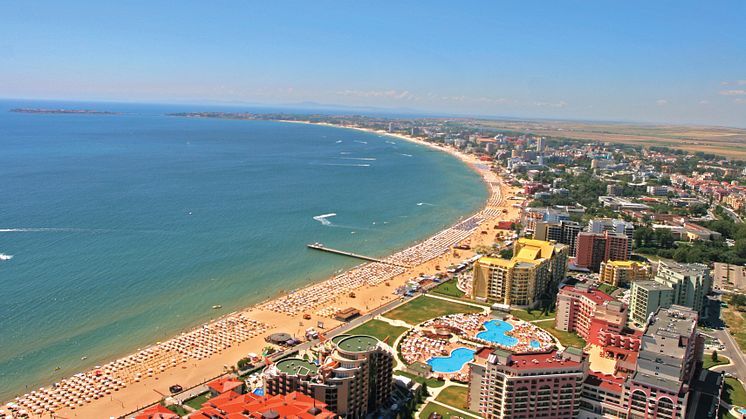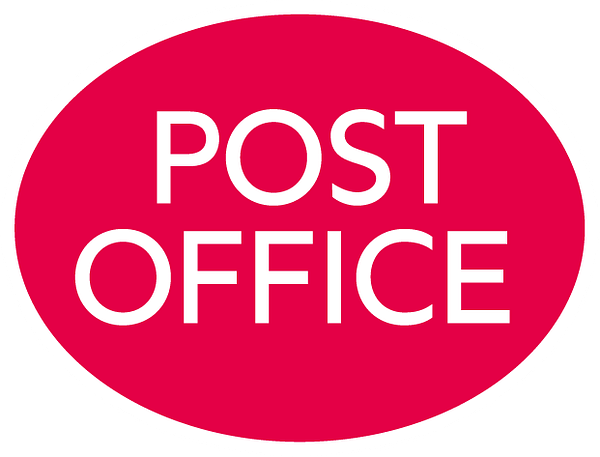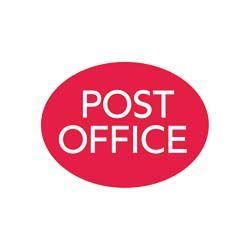
Press release -
Revealed: What it will cost to drive abroad on holiday this year
- More than 1-in-5 holidaymakers plan to drive while in Europe this year
- Cyprus offers holiday motorists the cheapest unleaded fuel at 98p per litre – and car rental costs least too (www.postoffice.co.uk/holidaymotoring)
- Diesel motorists will get a sub-£1 litre in Luxembourg and Andorra
- 80% of the 20 countries surveyed are cheaper for diesel than for unleaded petrol
- Prices have risen by 14-43% for unleaded and 24-71% for diesel since June 2016
- Half of holiday drivers risk excess charges of up to £1,434 on hire car accidents
Despite the prospect of tighter regulations when the UK leaves the EU, only three per cent of holidaymakers have been put off driving abroad this year, according to research for the annual Post Office Travel Money Motoring on the Continent Report. This reveals that a record 21 per cent of holidaymakers plan to drive their own car or rent one on trips abroad this year1`.Drivers in Cyprus, Luxembourg and Andorra will get the cheapest sub-£1 litre of fuel, while prices are highest in Norway at £1.62 for unleaded petrol and £1.50 for diesel.
20 European destinations were surveyed by the Post Office2 and Cyprus has emerged as cheapest for unleaded petrol at 98p per litre, an 11.7 per cent drop on last year’s pump price. Car rental costs in the country are lowest too.Five other countries –Luxembourg (£1.09), Austria (£1.10), Belgium (£1.32), Greece (£1.43) and Italy (£1.50) - also registered year-on-year falls of between 1-5p per litre despite the recent drop in sterling’s value.
With the exception of Sweden (£1.38, +15%), Croatia (£1.32, +12.8%), Germany (£1.43, +7.5%) and Slovenia (£1.21, +7.1%), prices in the other countries surveyed were either on par with 2018 or rises were no greater than 2.4 per cent (£1.28, Switzerland).
Diesel motorists will get a sub-£1 litre in both Luxembourg (96p) and Andorra (97p).Prices are down 4p a litre at the pumps in Luxembourg (-4%) but the biggest price falls of 5p are in Austria (£1.02, -4.7%) and Cyprus (£1.06, -4.5%). Diesel prices in most other countries have either fallen, risen marginally or remain on par with 2018.However, prices have surged by 18p a litre in Sweden – a rise of 15.3 per cent.
Diesel remains cheaper than unleaded petrol in 80 per cent of the countries surveyed and motorists in a diesel car will save as much as 32p a litre in the Netherlands where this costs £1.28 compared with £1.60 for unleaded.Exceptions to the rule are Belgium (+3p), UK (+5p),
Switzerland (+6p) and Cyprus (+8p) where diesel is more expensive than unleaded petrol3.
In France and Spain, the most popular places to drive, prices are roughly on par with last year.46 per cent of those surveyed said that they have driven or will drive in France this year, while 39 per cent have driven or will drive in Spain.Motorists will get a cheaper deal in Spain because unleaded petrol costs £1.19 - 22p less a litre than in France (£1.41) - while diesel costs 18p less - £1.12 in Spain compared with £1.30 in France.Over 1,000 miles of motoring that makes a difference of £32 for unleaded petrol and over £27 for diesel fuel.
Post Office Travel Money also compared pump prices now with those charged in June 2016 at the time of the EU referendum and found double digit percentage rises for both fuels in all the countries surveyed4.The biggest price increase is in Greece where a litre of unleaded petrol has increased by 45p (43.3%) and diesel has surged 55p (71.4%) in the past three years.The smallest unleaded petrol increase of 12p has been in Cyprus – a rise of 14 per cent – while diesel prices have risen least in percentage terms in the UK (+26p, +23.8%).
Nick Boden, Head of Post Office Travel Money, which accounts for one-in-four UK foreign exchange transactions, said: “It is good news that fuel prices in most European countries are either cheaper or roughly the same as last year.However, they continue to vary significantly between countries so it will make sense for holiday motorists to plan routes carefully to cut costs.
“By doing their homework, motorists driving south from the UK to the French Riviera or Italy can save 28p a litre on unleaded by taking a pit stop in Luxembourg where pump prices are state-controlled.Similarly, they can save 17p a litre on unleaded and 32p on diesel on lakes and mountains touring trips by crossing from Switzerland to Austria.
“Should Britain’s exit from the EU take place before October, remember that it will be necessary to have an International Driving Permit.It would be wise to get one now to avoid a last minute rush and you can get this from your local Post Office at the same time as ordering your travel money.”
Risk-takers could face an excess of trouble with holiday car hire in Europe
Turning to rental costs, Post Office Travel Money found that holidaymakers hiring cars in Europe risk excess charges of up to £1,434 if they have a crash or the vehicle is stolen.Yet the research reveals that half of motorists who hire cars fail to take out Excess Waiver Insurance (EWI) that will reduce their excess to zero in the event of damage to the car.Only a third cover themselves against tyre, undercarriage and window damage5.
Post Office Travel Money research into the excess charges levied by rental companies in the 13 countries6 where UK tourists are most likely to pick up hire cars found that holiday prangs could cost those without the 0% EWI between £534 in Corfu (hiring from Corfu International Airport) and £1,434 in Switzerland (hiring from Zurich Airport).
A number of other destinations carry high excess charges for holidaymakers who have an accident.Renting a car from Malaga Airport in Spain and Faro Airport in Portugal means drivers stand to pay £872 and £974 respectively, while Ireland (Dublin Airport: £1,357) and Italy (Pisa Airport: £1,409) join Switzerland in charging the highest excess.
Yet, the Post Office found that the cost of 0% EWI and tyre, undercarriage and window
insurance is a small proportion of the potential excess charge payable for damage or loss.In all three countries charging the highest excess, that insurance is a fraction of the cost.In Switzerland the extra insurance costs an average of £120 – eight per cent of the potential excess charge, while in Italy holidaymakers can expect to pay around £205 - 15.6 per cent of the possible penalty – and in Ireland the £139 cost is just 10 per cent of the excess charge.
The problem, says the Post Office, is that while attractive ‘headline’ rates offered for a week’s car rental are tempting, the cost of adding 0% excess insurance and a second driver virtually doubles the price in most countries. In Belgium (Brussels Airport) a basic £157 hire cost rises to £394 when the extras are added. Prices double in Cyprus, Austria, Germany, the Netherlands, Spain, Italy and France too.
Nick Boden said: “It isn’t surprising that motorists choose the cheapest rate as car rental gets expensive once extras are added. But, the consequence of not paying to reduce the excess to zero could leave you with a much higher bill if you have an accident or if another driver hits your car and leaves without giving their details.”
To find the best value holiday car rental, Post Office Travel Money combined the cost of a week’s basic hire with two extras payable on arrival (0% Excess Waiver Insurance and additional driver) and a tank of unleaded petrol (40 litres).Cyprus offered the best rates at £369.At the other end of the scale, renting a car in Ireland cost £651 - 76 per cent more7.
Nick Boden said: “Don’t leave it until you get to your destination to find out how much the hire car is really going to cost.Calculate the cost you will pay by doing some homework before leaving home to find out the realistic price of renting a car and budget accordingly.
“Remember that many extras must be paid in local currency when collecting the hire car.Change pounds into foreign currency before leaving home to cover this cost rather than incur charges for paying on plastic - especially as higher value currency transactions attract improved exchange rates in our branches or online and will save money in the long run.”
Ends
For more information, please contact:
Joanne Leahy Post Office Press Office07791 894469
Christine BallCBPR01798 874177 / 07976 285997cball@cballpr.co.uk
Notes to Editors:
The Post Office is the UK’s leading provider of foreign currency, offering euros on demand at over 10,000 branches. Euros can also be ordered online at postoffice.co.uk for same day ‘click and collect’ at selected branches or for home delivery/next day collection at any Post Office branch. Other currencies that feature in the Motoring on the Continent report are among 30 leading ones available over the counter at 1,600 larger Post Office Branches.A total of up to 70 currencies can be pre-ordered at over 11,500 branches or order travel money onlinefor next day branch or home delivery.
Post Office Limited is committed to protecting your privacy, information about how we do this can be found on our website at www.postoffice.co.uk/privacy
1Post Office research by Populus (1-2 May 2019) among 1,321 UK adults who are planning holidays abroad in 2019 found that 21 per cent are planning a motoring holiday in their own car or to rent a car.This is the highest proportion since Post Office first ran the intentions research in 2013.
2 2019 vs 2018 prices.Fuel prices for the Post Office Travel Money Motoring on the Continent report were sourced from fuel-prices-europe.info. Post Office Travel Money surveyed unleaded petrol and diesel prices per litre and calculated the cost of motoring for 1,000 miles (based on 30 miles per gallon/4.55 litres), comparing 2019 prices with 2018. Data for both tables relates to exchange rates on 14 June 2019 and the cost per litre is to the nearest pence. A full breakdown of costs is shown in the accompanying tables.
3 Cost of unleaded petrol vs diesel is shown in the accompanying tables.
4 2019 vs 2016 prices.Fuel prices for the Post Office Travel Money Motoring on the Continent report were sourced from fuel-prices-europe.info. Post Office Travel Money surveyed unleaded petrol and diesel prices per litre and calculated the cost of motoring for 1,000 miles (based on 30 miles per gallon/4.55 litres), comparing 2019 prices with 2016. Data for both tables relates to exchange rates on 14 June 2019 and the cost per litre is to the nearest pence. A full breakdown of costs is shown in the accompanying tables.
5Post Office research by Populus (1-2 May 2019) among respondents whohave used a hire car overseas found that half (50 per cent) did not pay for excess waiver insurance reducing the potential excess charge to zero while two-thirds (67 per cent) failed to take out insurance cover for tyre, undercarriage or window damage.
6 See accompanying tables document showing a comparison of the cost of accidental damage excess payable in the 13 most popular countries for UK motorists with the cost of reducing that excess to zero and the resulting percentage that insurance costs in relation to the potential excess charge.
7 See accompanying tables document showing the total cost of car hire that includes additional driver, insurance reducing excess charges to zero and 40 litres of unleaded petrol.
Categories
About Post Office:
- With 11,500 branches, the Post Office is among the larger retail networks in the UK.
- 97% of Post Office branches are run with retail partners on an agency or franchise basis.
- The Post Office provides services central to peoples’ everyday lives; 99.7% of the population lives within 3 miles of a Post Office.
- We offer the UK’s largest fee free cash withdrawal network through our 11,500 branches and an additional 2,500 cash machines and 99 per cent of UK bank customers can access their accounts at the Post Office.
- We sell 170 different products and services spanning financial services including savings, insurance, loans, mortgages and credit cards; Government services; telephony; foreign currency; travel insurance and mail services.
- Post Offices branches remain highly valued and trusted, and are the focal point of many communities. For more information; visit www.postoffice.co.uk and to find out about a Post Office business opportunities; visit www.runapostoffice.co.uk



